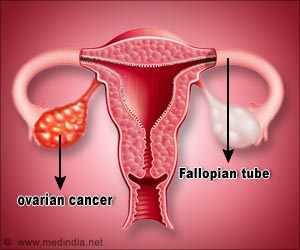Genes may be seen as a codebook for the way in which the cell’s building blocks – its proteins – should be produced. If you inherit a mutation in a gene, there is an error in the codebook, leading to an error in the protein. This could potentially disrupt the function of the protein and damage the cell.
Today we know that the protein BRCA2 – which the gene and namesake BRCA2 is encoding – plays a key role in the repair of certain types of DNA damage in cells. And if DNA damage is not repaired, it can lead to cancer.
“We found that there is an interaction between BRCA2 and the enzyme which is key to the cell’s ability to repair DNA damage. At the same time, we can see that mutations that impair this interaction reduce the ability to repair DNA damage. We made this discovery by studying a part of BRCA2 that no one has previously looked at,” says Postdoc Sara Marie Ambjørn.
“We have tested mutations found in cancer patients that affect the interaction between the enzyme and BRCA2, and we can see that they affect the cells’ response to a substance used in chemotherapy,” she says.
Targeted treatment in the future
In order to arrive at these results, the researchers introduced various mutated versions of BRCA2 in human cells in the laboratory and investigated their ability to support DNA repair. They found that if they mutated BRCA2 so that the interaction between the enzyme and BRCA2 was interrupted, the cells could no longer repair damaged DNA.
There are a number of studies that have hinted at a role of the enzyme in connection with repair of DNA damage. However, this study from the University of Copenhagen is the first to directly document how it happens.
“We can now state that it is necessary for the enzyme PP2A-B56 to interact with BRCA2 in order for DNA damage to be repaired properly and in a healthy manner. We also know that mutations in the enzyme itself are connected to the development of certain types of cancer. This opens up a perspective for studying whether some cancer patients with mutations in the enzyme may benefit from treatments used for cancer patients with BRCA2 mutations,” says Postdoc Sara Marie Ambjørn.
The result can pave the way for cancer patients with a particular group of mutations to receive a more targeted treatment in the future.
Source: Eurekalert



